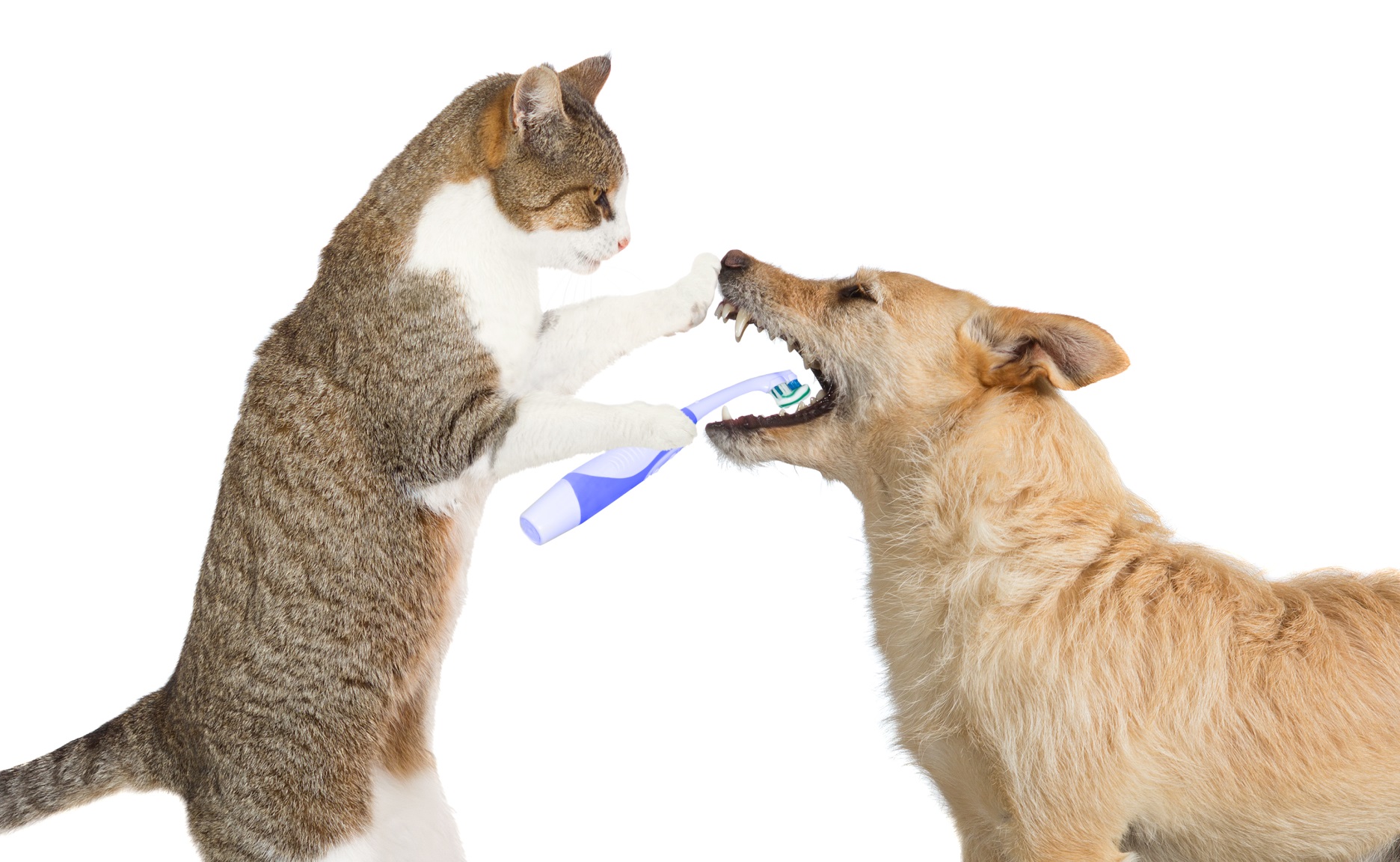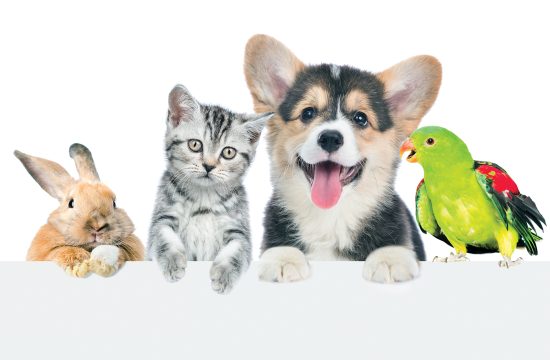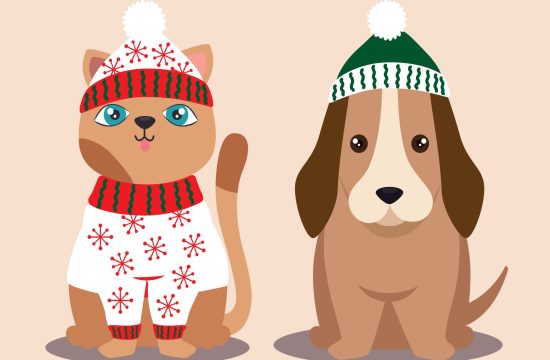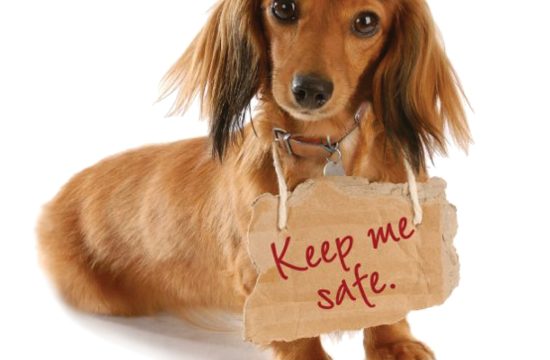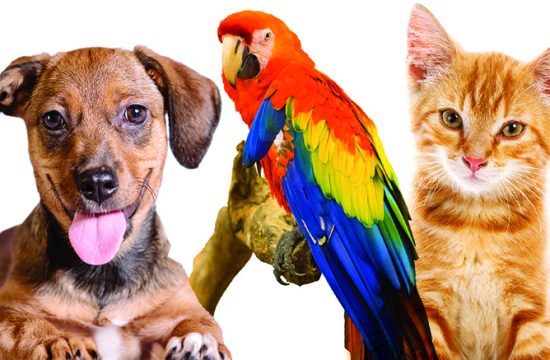Most of us brush our teeth at least once or twice a day, but our pets … well they aren’t very good at taking care of their teeth without our help.
There is no question that good dental care provides a whole collection of benefits to your pet, as well as to you. Poor dental care results in tartar buildup on the teeth and causes gingivitis which is defined as inflammation of the gums around the teeth. This inflammation results in the breakdown of the barrier that keeps the bacteria from the mouth out of the underlying bone and the blood. When bacteria from the mouth invade the bone it can cause serious infections which can result in tooth loosening and loss, or even osteomyelitis (bone infection) of the bones of the jaw and face which in rare instances can be fatal. Bacteria that get into the blood stream tend to settle out on the valves of the heart causing heart murmurs and congestive heart failure. The nasty little bugs also like to settle in the kidneys where they can cause kidney failure.
As you can see regular dental care is very important to the overall health of your pet. It will also make your life more pleasant as dirty teeth and gingivitis are the leading cause of pet bad breath.
All that being said, what should you do to make sure your pet’s mouth is healthy? Regular scaling of the teeth, either using manual or ultrasonic equipment will really help. Legally this is considered surgery and can only be done by a licensed veterinarian or by a veterinary technician under the direct supervision of a vet. Even so there are lay people who do clean small animal’s teeth and as long as they do a good job I personally don’t have a problem with it.
Scaling is almost always done under some sort of sedation/anesthetic. While scaling isn’t particularly painful it is unpleasant to get down deep under the gums and that’s the most important part of the procedure. Since only veterinarians can use sedatives and anesthetics, it is my opinion that most of the time dentals should be done by vets because the drugs allow the job to be done much more thoroughly.
After your pets teeth are cleaned well you can do a lot to keep them clean and postpone needing to have them done again. First it’s generally considered true that dry food doesn’t cause as much plaque buildup as wet food. I’m not entirely sure this is true, but since obesity is also a problem in our pets and they tend to eat a little less if their food is kibble … why not feed dry food? A bigger help is to actually brush your pet’s teeth. You can teach almost any dog or cat to allow you to brush their teeth. Use a soft bristle brush (you should do the same on your own teeth). There are special brushes for dogs and cats, including some that fit over your fingertip, but a human brush can be used. The toothpaste can be anything from human paste to special meat flavored paste to just plain baking soda in water. It’s really the mechanics of brushing that’s most important. It takes a little over 24 hours for plaque to form and stick to teeth so you do need to brush at least once a day. Once the plaque has hardened and stuck to the enamel no amount of brushing will get it to come off.
Remember that if you’re just getting your pet and they’re youngsters start training them early. It’s a lot easier.
One last note and this is really important. If your pet won’t let you brush their teeth don’t force it. They might bite and clean teeth are just not worth getting bitten over. If they’re bad take them in and get them worked on by a professional.

